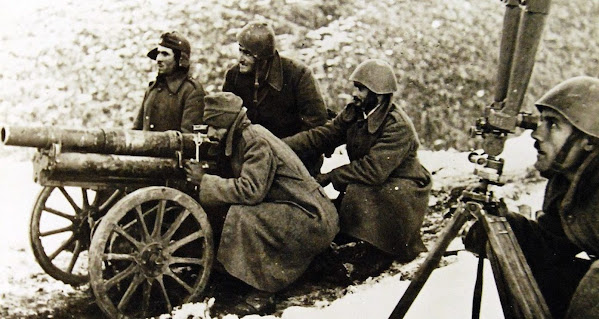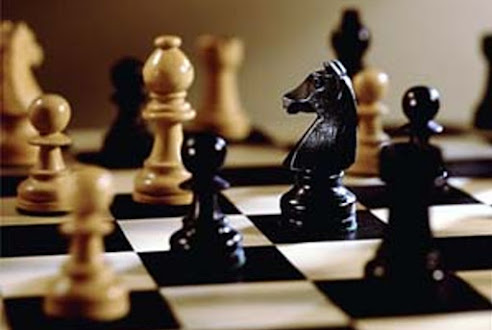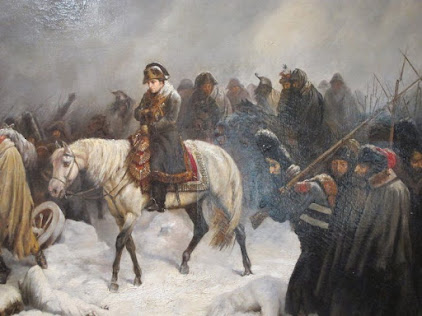I have no more information available than the average person connected to the Web, nor can I claim to be more than an armchair strategist. For these reasons, I haven't written anything about the war in Ukraine, so far. But I have studied Italian history, and I have a special fascination for the incompetence of leaders. So, I thought I could propose to you a retelling of the Greco-Italian war of 1940, one of the clearest demonstrations of incompetence that a government ever provided. Can it provide us with insight into the current situation? I leave that to you to decide.
In the late 1930s, Benito Mussolini, the prime minister of Italy, had reached the stage in which he could not be contradicted by anyone. And not just that: he was like a child who, when he wants a toy, wants it immediately. Since Mussolini was the absolute ruler of the country, this combination of incompetence and arrogance was the perfect recipe for disaster. Which took place in multiple forms.
In 1940, when World War II had just started, it seems that Mussolini's main concern was to show his ally, and also rival, Adolf Hitler, that Italy, too, could engage in a victorious blitzkrieg campaign. It was at this stage that the idea of attacking Greece appeared. It made some sense because Greece was a potential ally of Britain (**), and also a relatively weak target. After all, Italy had been able to subdue the Albanian Kingdom in just a few days, the year before. So, why should things be different with Greece?
The problems with this idea were several: the main one was that -- unlike Albania -- Greece had a serious army. But Mussolini wanted the invasion at all costs, and his military staff seemed to be engaged mainly in the game of pleasing him. So, a plan was devised to use the Italian troops stationed in Albania to attack Greece. Everyone seemed to be convinced that it would be a cakewalk and that Greece would fall at the first push. So, in the Summer of 1940, Mussolini set the date for the start of the invasion in October. Nobody dared tell him that the plan implied crossing the Epirus mountains and that doing that in winter was not exactly a good idea for a blitzkrieg, German style.
Duly, on the chosen date of October 28, 1940, the Italian infantry advanced into Greece. It was instant disaster. The Greeks were waiting, well-entrenched, supplied with weapons and ammunition by the British, and ready to fight. The list of mistakes made with this campaign is so long to be worth a whole book (which exists, it is titled "The Hollow Legions" by Mario Cervi). Let's just say that the Italian attack was carried out by insufficient troops, insufficiently equipped, insufficiently prepared, and led by incompetent generals. The Italian high command seemed to think that they were still fighting World War I. What could go wrong with running against an entrenched enemy with fixed bayonets?
During the first weeks of the campaign, not only the Italians could not advance, bogged in the mud and the snow, but they took heavy losses, and they seriously risked being thrown back into the sea. That could be avoided only throwing everything available in terms of troops and equipment at the Greeks. The struggle lasted about six months, and even with a numerical superiority of 2 to 1, the Italians couldn't get through. It ended when the Germans intervened in the spring of 1941. At that point, the combined pressure of the German and Italian armies forced Greece to surrender.
The cost of the Greek campaign had been enormous for Italy: more than 100,000 casualties. The Greek front had also absorbed five times more troops than on the North-African front, where they would have been badly needed -- one of the reasons for the Italian defeat in that region. It was one of those victories that one almost wishes had been defeats.
But Italy suffered the strongest blow in terms of propaganda. Mussolini had built his reputation as an "infallible" leader (the slogan was "Mussolini is always right"). After all, up to then, he had won all the wars he had engaged Italy in. But the failure of the Greek campaign offered the Allies a chance to paint him not just as an evil dictator (which he was), but also as a bumbling idiot (which he was, too). To say nothing about the blow to the reputation of Italy as a military power. Even from the Axis side, Mussolini received plenty of flak. The Germans used the Italian blunder in Greece as an excuse for the failure of their 1941 campaign against the Soviet Union, which they attributed to the delay caused by the need of helping the distressed Italians (*). Only in Italy, the press continued to praise Mussolini's leadership and his clever strategic insights.
So, history always teaches you lessons, often fascinating ones. In this case, we can learn that:
- Having won the previous war doesn't mean automatically winning the following one.
- Invincible leaders often turn out to be just lucky leaders. Until their luck runs out.
- Aging leaders may turn into bumbling idiots. Or maybe that's what they were all along.
- No mistake made by a leader can be so big that his followers will not praise it as evidence of superior strategic savvy.
- A victory obtained at too high a price is worse than a defeat.
- Propaganda is mightier than the sword.
- History pardons no mistakes.
Now, does the story of the Italian attack on Greece in 1940 offer us insights into the current situation in Ukraine? Maybe, but only in part. Evaluating ongoing events by comparing them to historical ones is the fastest way to enormous mistakes. Whatever happens in the world, happens for a reason, and Tolstoy correctly said that "a king is history's slave." History made Mussolini able to make enormous mistakes only because a series of factors had converged in making these mistakes possible. Other factors led to what's happening right now in Ukraine. And history moves on anyway.
The main reason why I told you about the Greco-Italian war is that, more than 80 years later, we can pause for a moment to consider why tens of thousands of Italian and Greek men fought against each other so hard and died in such large numbers. Thinking about how useless that ancient war was may give us some perspective on how useless the current war is. We can only hope that it will end as soon as possible.
(*) The story that the Italians were responsible for the failure of the German attack on Russia in 1941 is, most likely, just a piece of propaganda. It may hold something true, though, and it opens a number of fascinating questions about leader control. Why exactly did Mussolini decide to attack Greece in winter? Just because he was completely stupid? Or was the idea somehow "planted" in his mind by a foreign agency? We'll never know that, but it is remarkable how often leaders don't just make huge mistakes, they make the kind of mistakes that play in the hands of their enemies.
(**) Formally, in 1940, Greece was neutral. But, in international politics, form and substance are always different. When Italy invaded Albania in 1939, it sent to Greece a clear message: "you are next." In the complex mosaic of the Balkan politics, that had pushed Greece into the uncomfortable position of being surrounded by potential enemies (Bulgaria, Italy, and Turkey) and, as a consequence, to seek for closer links to its traditional ally, Britain. The British saw Greece mainly as an ally against German expansion in the Balkans and, in 1934, had created the "Balkan Entente" that implied military support in case of threats on the signatories’ territorial integrity. All that gives a certain strategic logic to the events of 1940-1941.















